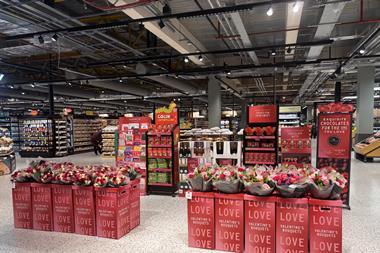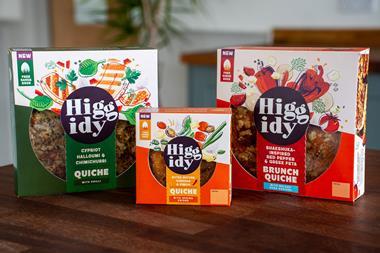Suppliers are failing to adopt global data synchronisation despite its promise of a collaborative utopia, according to exclusive research carried out for The Grocer.
A study by DCE Consultants for The Grocer's Supply IT supplement, which is free in next week's issue, shows that only 14% of suppliers have completed GDS projects while a paltry 8% expect to reach completion in the next 12 months.
This suggests that critical mass is a long way off, despite companies such as Procter & Gamble, Unilever, Kraft and Masterfoods backing the GS1 UK data pool, which is being driven by Tesco, Asda and Makro.
"About 70% of manufacturers we talked to haven't really got started yet, which is a disappointing finding for the likes of Tesco and Asda," said Garry Smith, senior consultant at DCE Consultants.
"People are quite simply sitting on their hands and waiting until they see a clearer picture of industry commitment. Suppliers don't yet see their competitors jumping in and not all retailers are doing this. This stalling will seriously impact the pro-GDS retailers' timescale for implementation."
The move to GDS means that the data used to describe and verify products by a supplier would be identical, regardless of which retailer was selling them, eliminating the need for each shop to manually input data and thereby reducing resulting errors.
According to the survey, manufacturers see GDS as a means to improving back office efficiency, but are not looking beyond that at potential sales increases and cost reductions. The majority said the anticipated benefits were 'transactional accuracy' (85%) and 'improved data integrity' (85%), while 77% cited 'elimination of manual processes' and 62% 'supply chain efficiencies'. Only 46% felt 'cost reductions' would be a benefit while a mere 23% expected 'sales improvement' thanks to more efficiency when bringing new products to market.
A study by DCE Consultants for The Grocer's Supply IT supplement, which is free in next week's issue, shows that only 14% of suppliers have completed GDS projects while a paltry 8% expect to reach completion in the next 12 months.
This suggests that critical mass is a long way off, despite companies such as Procter & Gamble, Unilever, Kraft and Masterfoods backing the GS1 UK data pool, which is being driven by Tesco, Asda and Makro.
"About 70% of manufacturers we talked to haven't really got started yet, which is a disappointing finding for the likes of Tesco and Asda," said Garry Smith, senior consultant at DCE Consultants.
"People are quite simply sitting on their hands and waiting until they see a clearer picture of industry commitment. Suppliers don't yet see their competitors jumping in and not all retailers are doing this. This stalling will seriously impact the pro-GDS retailers' timescale for implementation."
The move to GDS means that the data used to describe and verify products by a supplier would be identical, regardless of which retailer was selling them, eliminating the need for each shop to manually input data and thereby reducing resulting errors.
According to the survey, manufacturers see GDS as a means to improving back office efficiency, but are not looking beyond that at potential sales increases and cost reductions. The majority said the anticipated benefits were 'transactional accuracy' (85%) and 'improved data integrity' (85%), while 77% cited 'elimination of manual processes' and 62% 'supply chain efficiencies'. Only 46% felt 'cost reductions' would be a benefit while a mere 23% expected 'sales improvement' thanks to more efficiency when bringing new products to market.















No comments yet